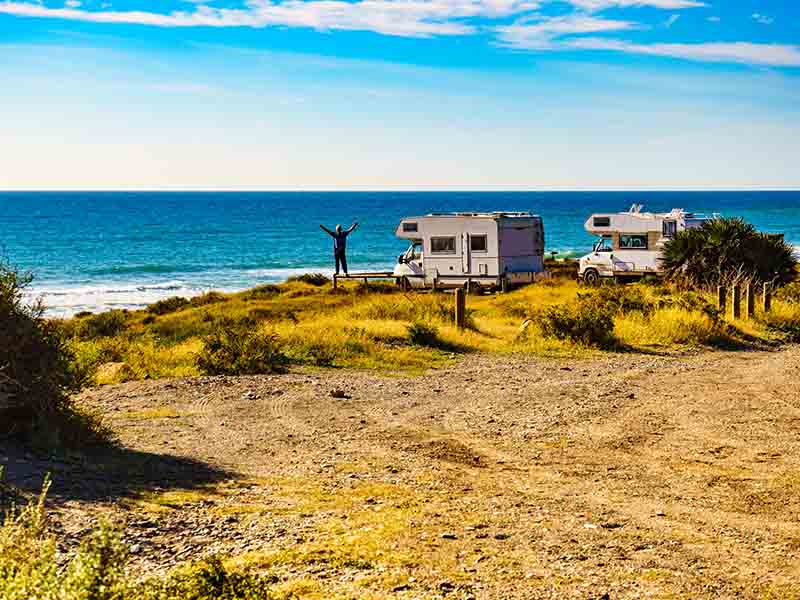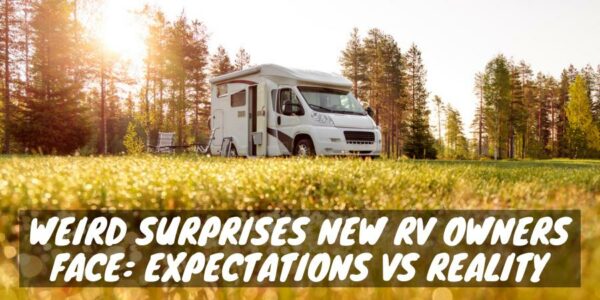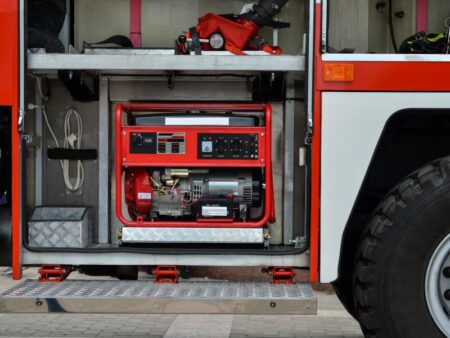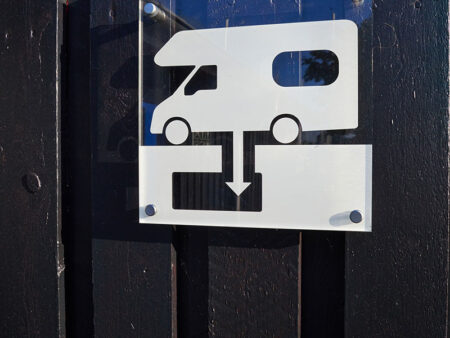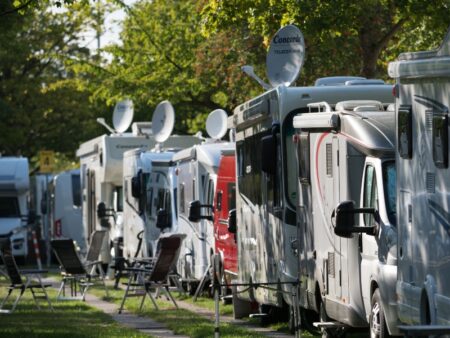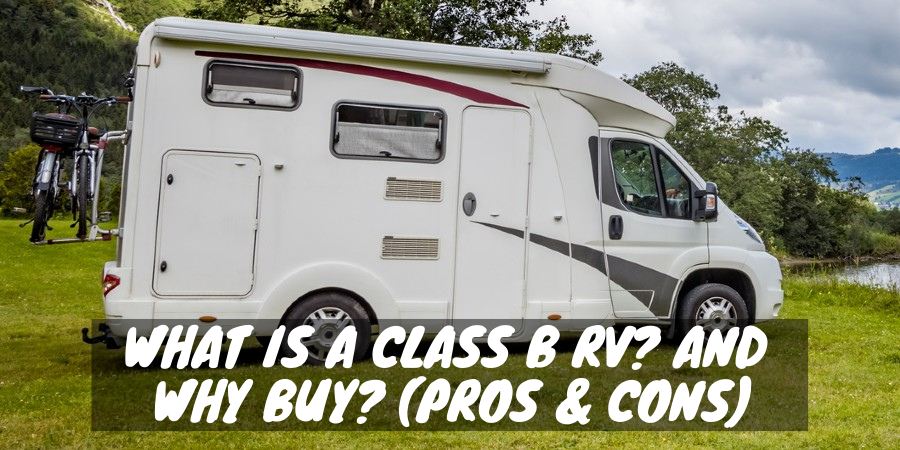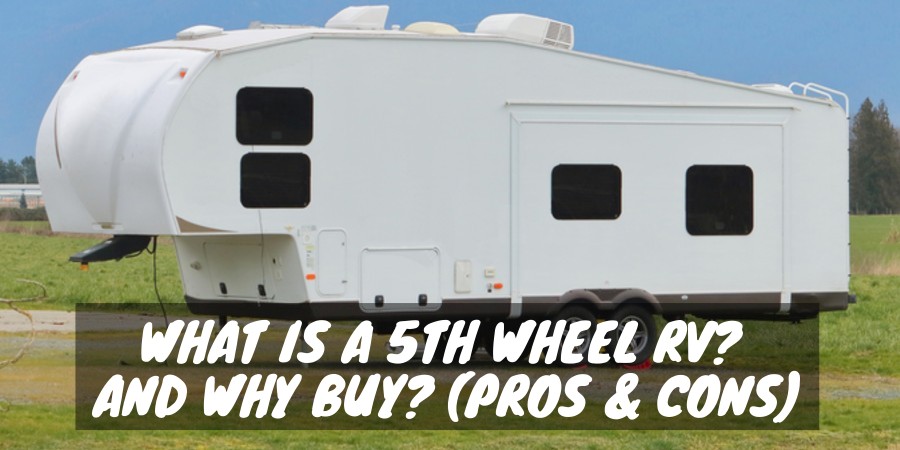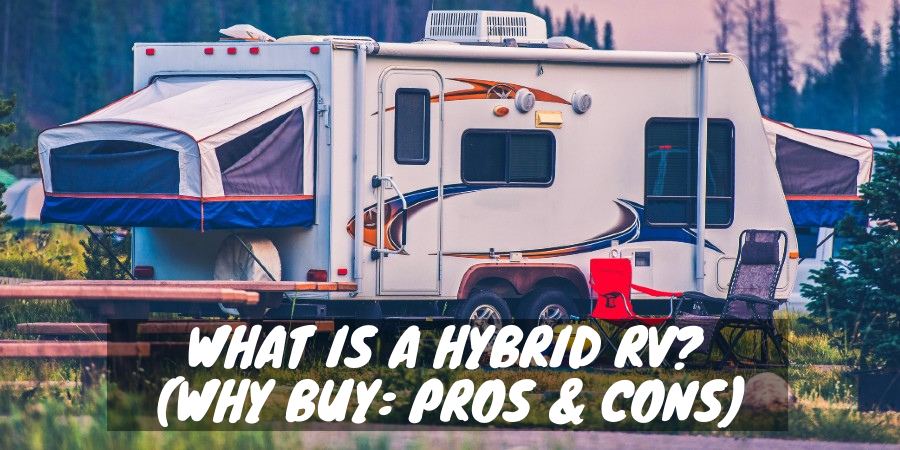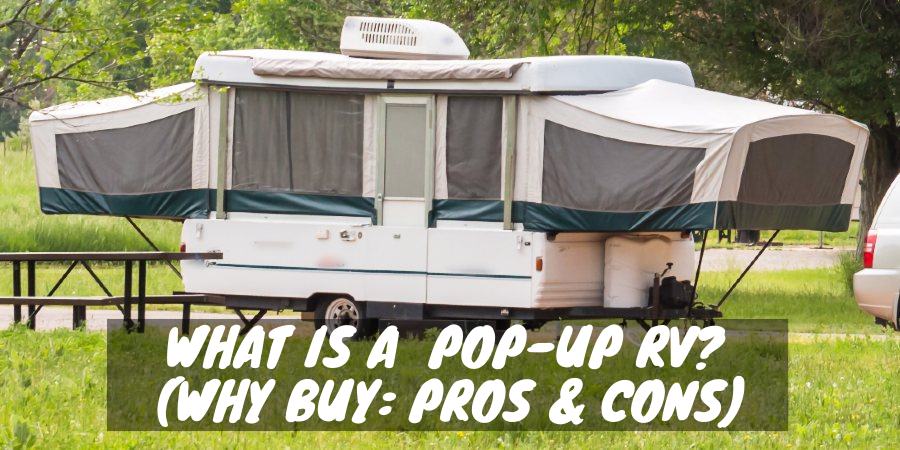California recently made a major decision that will shape the future of transportation.
Starting in 2035, California will only allow the sale of new cars and trucks that produce no harmful emissions.
This rule also affects many motorhomes.
Fifteen other states will likely adopt similar policies, following California’s lead.
By 2045, most large motorhomes will also be impacted by these changes.
The only exception to the ban will be plug-in hybrid vehicles, which can still be sold after 2035.
This raises questions about the future of recreational vehicle (RV) users and related services that could be affected by the new rules.
But What If You Already Own One?
If you already own a gas or diesel vehicle, there’s no need to worry.
California won’t prevent you from driving or selling it, even after 2035.
The ban is specifically for new vehicles, so used gas or diesel vehicles can still be bought and sold.
The new regulations bring up many concerns.
For example, as more zero-emission vehicles are sold, will it lead to fewer services in related areas?
According to the rules, starting in 2024, an increasing number of zero-emission vehicles must be sold each year until only clean-air vehicles are allowed.
By 2035, if the majority of cars and trucks in California don’t need gas or diesel, will traditional gas stations be replaced by electric vehicle charging stations?
If this happens, you might have to travel long distances to find a gas station for your motorhome or pickup truck with a trailer.
You could still stop at a convenience store for a snack, but filling up your gas tank might be a challenge.
Moreover, if most vehicles on the road are electric, finding a mechanic to fix your gas or diesel engine could become difficult.
Even if you find one, they might be so busy that you’d have to wait weeks or months for the necessary repairs.
And It’s Not Just California
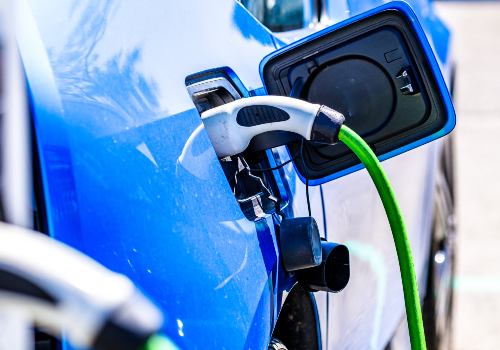
Don’t think this is only happening in California.
Many other states are planning to follow their lead in promoting cleaner transportation.
Here’s a list of 14 other states that have already set similar goals:
1. Colorado
Aims for 100% renewable energy vehicles by 2040.
2. Connecticut
Plans to have 125,000 – 150,000 electric vehicles on the road by 2025.
3. Delaware
Committed to adopting California’s regulations.
4. Maine
Hopes to have 200,000 zero-emissions vehicles on the road by 2030.
5. Maryland
Can adopt California’s regulations through its “Clean Car Program.”
6. Massachusetts
Intends to implement California’s clean engine regulations.
7. Minnesota
Adopted California’s emissions rules in 2021, but some lawmakers want to reverse the decision.
8. New Jersey
Wants 85% of new light-duty vehicles to be electric by 2040.
9. New Mexico
Adopted the Clean Car Rule and will phase out gas-powered vehicles starting in 2026.
10. New York
Enacted a law that phases in non-gas-powered vehicles, now in effect.
11. Oregon
Aims for 90% of new vehicles sold to be zero-emission by 2035.
12. Rhode Island
The governor joined 12 others in asking President Biden to phase out gas-powered cars by 2035.
13. Vermont
Requires over 5% of new vehicles sold in the state to be zero-emission by 2025.
14. Washington
Want to Connect With a Community of Over 1,078 RV Enthusiasts?
Passed a law requiring all cars registered in the state to be electric by 2030.
As time goes on, more states are likely to join the push for cleaner transportation.
How Has the Industry Responded?
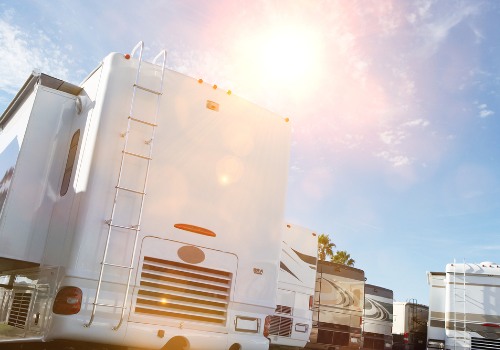
The news is still fresh, and we reached out to various industry groups, such as California’s RV dealers, retail fuel sellers, and auto repair technicians, for their comments.
We’ll share their responses when we receive them.
We did get a reply from Phil Ingrassia, the president of the national RV Dealers Association (RVDA).
Although RVDA has no official stance on California’s rules, Ingrassia discussed the general concerns they raised with California’s rule-makers, including battery production and raw material availability.
CARB believes technology will catch up to meet the demands of the new regulations.
Ingrassia noted that major RV manufacturers and suppliers are already developing electric motorhomes and zero-emission drive systems for towable vehicles.
California’s decision will likely speed up this transition for RV owners.
While the industry continues to adapt, Ingrassia acknowledges that it’s still unclear exactly how everything will unfold.
What Are Your Thoughts?
Indeed, the situation seems uncertain.
With California paving the way and other states following suit, what does this mean for you?
Are you confident in purchasing a new car, towing truck, or motorhome in the current climate?
If there’s a shortage of fuel stations and repair centers, would you still consider investing in a fossil-fuel-powered vehicle?
We’d love to hear your opinions.
Please share your thoughts by replying in the comments below.
California Will Require All New Cars Sold To Be Zero-Emission By 2035 (Video)
"Man cannot discover new oceans unless he has the courage to lose sight of the shore."
-- Andre Gide

